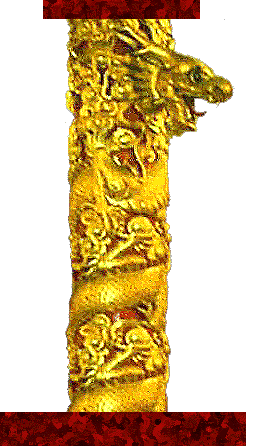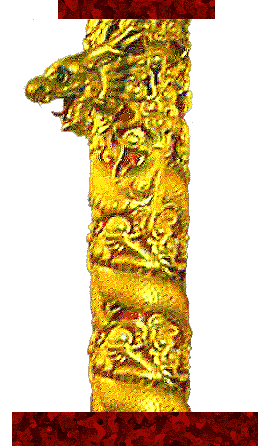| |
The weekend had begun with the promise of good times for Denise Louie, 21, and her friends, Wendy Suto and Janice Imanishi, both 23. On the spur of the moment, Wendy and Janice had decided to join Denise on the flight from Seattle on Friday night. Denise was anxious to see Paul Wada, 25, whom she had met in San Francisco the previous summer. He was one of the most inspiring young men she had ever known.
Paul was sympathetic, sensitive, selfless and bright, which could also be said of Denise. He was about to begin his third year as a student at the University of San Francisco Law School and had majored in economics at the University of California at Berkeley; Denise was a student in urban planning at the University of Washington in Seattle. A native of San Francisco, Paul was a graduate of Washington High School; a native of the northwestern city, Denise had gone to Seattle's Cleveland High. Paul was Japanese-American; Denise was Chinese-American.
Paul had worked for the previous year on the staff of the Western Addition office of the Neighborhood Legal Assistance Foundation, providing legal services to the poor; in October 1976, Denise was appointed to the Board of Directors of the International District Improvement Association, making her, at 20, its youngest member. The International District of Seattle is similar to San Francisco's Chinatown and Japantown conjoined, being composed mostly of Chinese, Japanese and Filipinos.
Paul participated in numerous activities in the Asian community of San Francisco. He counseled and tutored disadvantaged high school students through a program called Upward Bound; tutored Third World law students, and assisted program services for elderly Japanese-Americans. A tireless volunteer in the International District of Seattle, Denise labored in the community garden project for the elderly; assisted at the Emergency Center; helped found the Asian Pacific Women's Caucus; was active in the mayoral campaign of John Miller, and worked part-time as a medical clerk.
A friend said of Paul Wada that "he made each one of us feel so very special." An associate spoke of Denise Louie as "the kind of person you just have to put your arms around and hug."
Wendy and Janice loved being with Paul and Denise. The two pretty Japanese-American girls were lifelong friends who had met Denise at the University of Washington. They also knew Paul. The four of them went to Korea House in Japantown for dinner that Saturday night. Denise had just turned 21 a month before. Someone suggested a visit to the rotating bar high atop the glamorous Hyatt Regency Hotel. They drank strawberry daiquiris and reveled in the view. Denise must have felt deliciously sophisticated. How splendid to be 21!
But Wendy and Janice had no dates. Paul and Denise were obviously "a couple." Perhaps it was Paul who suggested they go out to his flat in the Richmond District and see if his two male roommates were home. It would seem they were not, for Paul called two other young men who joined them at The City Discotheque. It was crowded and noisy and too congested for the pleasure of the original foursome. Paul, Denise, Wendy and Janice adjourned to the Kabuki Bar in the Japanese Cultural Center in Japantown, also known, in Japanese, as Nihonmachi. The two young men stayed behind at The City.
Over popcorn and cocktails at the Kabuki, Paul and Denise announced further plans for the gala evening. It couldn't end with just the closing of a bar. They both wanted noodles. It was getting late. Naturally, that meant it was time for the Golden Dragon.
They arrived a little after 2:30 A.M. They were seated at a table beside the dragon pillar. When the shooting began, it was Paul who stood up and captured the attention of the rifleman. It was he who was shot and fell face down beneath the dragon. It was Denise who flung herself wildly in the bullets' path to save him. Both were people who always thought of others. It was over these two the shooter came to stand, pumping lead into them while he kicked Denise aside and blasted Paul in the back. Wendy fell near them, her body laced with bullets, her legs twitching, her blood pressure falling rapidly into a semblance of death. Janice fell, too, near Wendy, blood gushing from her wound. Their table toppled down on them all.
Fong Wong, 48, born in Mainland China, was a cultured man who had emigrated from Hong Kong to the United States in 1969. Five feet, nine inches in height, he was taller than the average Cantonese, but of slim physique. He had left a wife and seven children behind in order to make his way more easily alone in the New World. He went first to New York and worked as a waiter, moving next to Los Angeles, where he ran a take-out food business. An accomplished cook of both Cantonese and American cuisine, he was, as well, a talented musician. He played the violin beautifully, his taste inclining toward the romanticism of Brahms.
Reaching San Francisco in 1973, he found ready employment as a waiter at the Golden Dragon. Living quietly, soothing his loneliness with his beloved violin, he saved money and sent for his family in 1976. One daughter had married and remained in Hong Kong, but his wife and the other six children, ranging in age from 10 to 18 in 1977, joined him in America. He welcomed them to a cozy flat in North Beach, above a Chinese noodle factory. With only two bedrooms, it was much too small a place for a family of eight, yet it was more than merely a place to live; it was a home. He filled it with music; his family filled it with love.
As industrious as her husband, his wife went to work as a baker in a fortune-cookie factory. His kids went to school, the older ones taking care of the younger.
Fong Wong gave of himself to everyone. Many of the Golden Dragon's customers became his friends. The boss was very fond of him, as were his fellow workers. He had been working seven days a week since the death of a colleague from cancer two weeks before. Nothing seemed too much for him to do, if it were of help to others. "He was very harmonious," an employee said of him.
When the shooters entered the Golden Dragon, he had been working nine hours already that day, running up and down the steps to the mezzanine, whose tables he helped to serve. He had waited on Donald Kwan, Calvin Fong, Robert Yuen and the other girls and boys crowded around that booth and table.
He had not served the gangsters who sat across the aisle from the kids on the upper level. The restaurant was so busy that night, the waiters were required to attend to several stations instead of staying with their regularly assigned tables. Thus, as it had fallen to Fong Wong to work both levels, so it did to other waiters, too. One had taken the first order for clams at the gangsters' table, but a second order was relayed to someone else--Hong "Pat" Chan, who was helping out in all parts of the dining room.
Fortyish, round-faced and solidly built, Pat Chan had also emigrated from Hong Kong. He used to live in Aberdeen, a settlement on the southern coast of Hong Kong Island, renowned for its sampan villages and "floating restaurants" popular with tourists. He taught English, mathematics and physical education at a school on the mountain behind Aberdeen. Many of his students had been from the "floating" population living on the water in sampans and junks. It was not compulsory to go to school in Hong Kong, and survival was such a problem that a lot of kids didn't get very far. Everybody in the family worked, including the kids. They set up market stalls or became street peddlers. Pat Chan had seen a difficult side of life, in his own experience and that of his students. He deeply appreciated the quality of his new life in San Francisco.
Pat Chan claimed to have been the first waiter to start taking the order at Paul Wada's table, from one of the girls, for duck noodles. Then he had been called away for a few seconds by someone who told him that the gang leader on the mezzanine, who apparently held the status of a V.I.P., had placed an order for more clams. Chan went up to verify it. It was close to closing time, and the Golden Dragon's clams took awhile to prepare. Boiled till open, they were then stir-fried in black-bean sauce. Fourteen or 15 pieces comprised a serving. Chan was later to say that the second order of clams saved his life. Had he remained at Paul's table, he would have been standing almost in front of the lower-level shooter.
As it was, he had no more than reached the big leader's table than the shooting began below. He ducked down and ran toward the back. Grabbing a startled busboy, he dashed into the dishwasher area and then into a restroom. A man and a woman ran in after them. Chan thus escaped injury, but the adventure would earn him celebrity in Chinatown and the enduring nickname, "Clams" Chan.
Maria Teresa Valdes, 24, lived in San Francisco and worked for Philippine Airlines. She arrived at the Golden Dragon about 1:45 A.M. with friends Jose and Anne Garcia. They sat on the lower level against the mezzanine wall, three tables back from the front aisle. Fong Wong was their waiter. He was a personal friend of Teresa's. An acquaintance of the Garcias, Charles Humphrey, was seated at another table, but came over to chat.
When the shooting started, Teresa dove to the floor, as did Charles. Jose pulled his wife under the table. Anne felt something strike her shoe. It was a bullet passing through the sole without wounding her. Teresa, twice thinking plates had fallen on her, realized soon enough that she had been shot, although not simply through the shoe. Shortly after the shooting stopped, a paramedic came to carry her away. "Pandemonium!" she muttered. "It was pandemonium!"
Immediately in front of Teresa Valdes sat Chinatown artist Jimmy Tan, 28. Jimmy specialized in Chinese brass painting. He was a full-time artist, for the sustenance of his soul, and a part-time waiter, for the sustenance of his body. Artistic interests may have been the basis of his friendship with Fong Wong, whom he had come to know through frequent visits to the Golden Dragon. Fong Wong was, after all, a full-time waiter and a part-time musician for much the same reasons as Jimmy Tan, who was a high-strung and deeply artistic young man. Fong was his waiter that night. One supposes that cosmopolitan people like Jimmy, and Teresa Valdes, always chose to sit at Fong Wong's station when they went to the restaurant. Their conversations would have been gentle and on the intellectual side.
Seated with Jimmy was another lofty thinker, Lily Yip, 46, editor and publisher of a weekly newspaper in Chinatown. They had arrived shortly after 2 A.M. Jimmy tried to order a drink, but the bar was already closed. It may have been too busy for much conversation with Fong, but Jimmy and Lily engaged in a discussion about the Chinatown gang war phenomenon that had erupted like boils in the last seven years. By 1977, nearly 50 casualties had been left in the wake of many times that number of beatings, knifings and shootings. In her position as a Chinatown journalist, Lily was well informed and inclined to editorialize on the subject.
At the moment when they first heard noises like firecrackers, Fong Wong was standing in front of Jimmy and Lily, waiting on the first table at the front aisle. They saw two masked men rush past him, almost close enough to brush against him. No sooner had the shots begun than Fong fell. Jimmy and Lily both dropped under their table. Lily twisted her ankle and grimaced in pain, then covered her head with both hands and closed her eyes. She heard Jimmy cry out, but did not dare to look.
| |
|









